AI Enthusiast Weekly(2024-10-14) : AI Pioneers Demis Hassabis and John Jumper Awarded Nobel Prize in Chemistry for AlphaFold
AI Pioneers Demis Hassabis and John Jumper Awarded Nobel Prize in Chemistry for AlphaFold
Demis Hassabis and John Jumper, pioneers in AI, have been awarded the 2024 Nobel Prize in Chemistry for their creation of AlphaFold. This AI system predicts protein structures from amino acid sequences, a task once complex and time-consuming.
Before AlphaFold, understanding protein structures was a laborious process. Now, with AlphaFold’s predictions freely accessible in the AlphaFold Protein Structure Database, over two million scientists worldwide use it to accelerate research. The AlphaFold 2 paper, published in 2021, remains one of the most cited in history.
AlphaFold’s impact is profound, recognized by multiple prestigious awards. Hassabis and Jumper’s work demonstrates AI’s potential to revolutionize scientific research, from data building to drug discovery.
In response to the Nobel Prize, Hassabis expressed his hope that AlphaFold will be seen as a pivotal moment in AI’s role in scientific advancement. Jumper echoed this, emphasizing AI’s capacity to expedite science and inform therapeutic development.
This award underscores the transformative power of AI in chemistry and biology, promising a future where scientific breakthroughs are accelerated by intelligent systems.
ScoresAI News
Liquid AI Introduces Dynamic AI Models for Continuous Data Processing
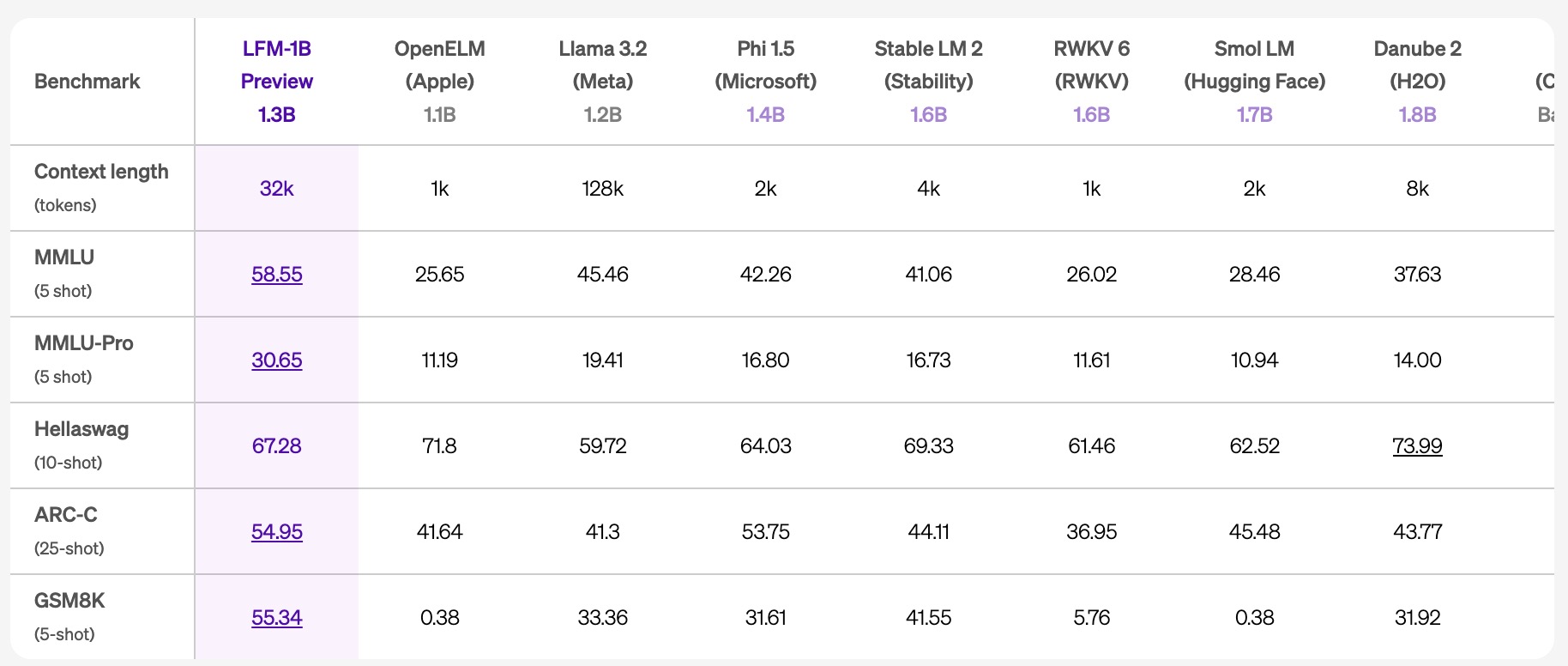
Liquid AI, a MIT spinoff based in Boston, has unveiled LFMs (Liquid Foundation Models). These AI models are designed to handle continuous data—think streaming information, not static datasets. The technology aims to make AI more adaptable and responsive in real-time scenarios.
Insight: LFMs represent a shift towards more fluid, dynamic AI systems. By processing continuous data, they could revolutionize applications from autonomous vehicles to financial trading, where quick, adaptive responses are crucial.
ScoresOxylabs Introduces AI-Powered Web Scraping Tool
Oxylabs has revolutionized web scraping with its new AI-powered tool, OxyCopilot. This innovation simplifies data collection by automating complex tasks. Users input a URL and natural language prompts, and OxyCopilot handles the rest.
Web scraping, the process of extracting data from websites, often requires technical expertise and significant time. OxyCopilot eliminates these barriers, making data collection accessible to anyone. The tool’s AI capabilities streamline the process, saving users both time and money.
This advancement democratizes data access, allowing businesses and individuals to gather insights without deep technical knowledge. It’s a game-changer for market research, competitive analysis, and more.
In essence, Oxylabs’ OxyCopilot transforms web scraping from a specialized task into a straightforward, efficient process. It’s a testament to how AI can simplify complex workflows, making powerful tools available to a broader audience.
ScoresAI Revolutionizes Chip Design: DeepMind's AlphaChip
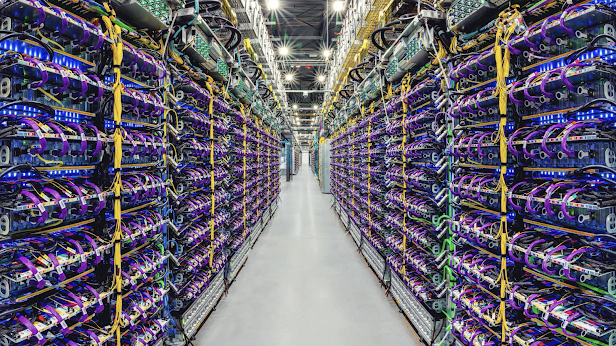
DeepMind's AlphaChip is revolutionizing chip design, using AI to accelerate and optimize the process. Traditionally, designing a complex chip could take up to 24 months; AlphaChip does it in hours. This breakthrough has been adopted by companies like Google and MediaTek, proving its efficiency and effectiveness.
AlphaChip treats chip layout like a game, starting with a blank grid and placing components one by one. It learns from each layout, improving over time. This method outperforms traditional human-led designs in both speed and quality.
Google has integrated AlphaChip into its Tensor Processing Units (TPUs), custom chips for AI acceleration. The technology has been pivotal in designing TPUs, enhancing performance and reducing design time.
MediaTek has also adopted AlphaChip, using it to develop advanced chips like the Dimensity 5G, improving power efficiency and performance.
While AlphaChip is currently used in specific chip modules, its potential is vast. It could optimize every stage of chip design, from architecture to manufacturing, impacting various industries from smartphones to medical devices.
This AI-driven approach marks a significant shift in chip design, promising faster, more efficient, and more accessible solutions.
ScoresSam Altman's Vision for AI's Future and Societal Impact
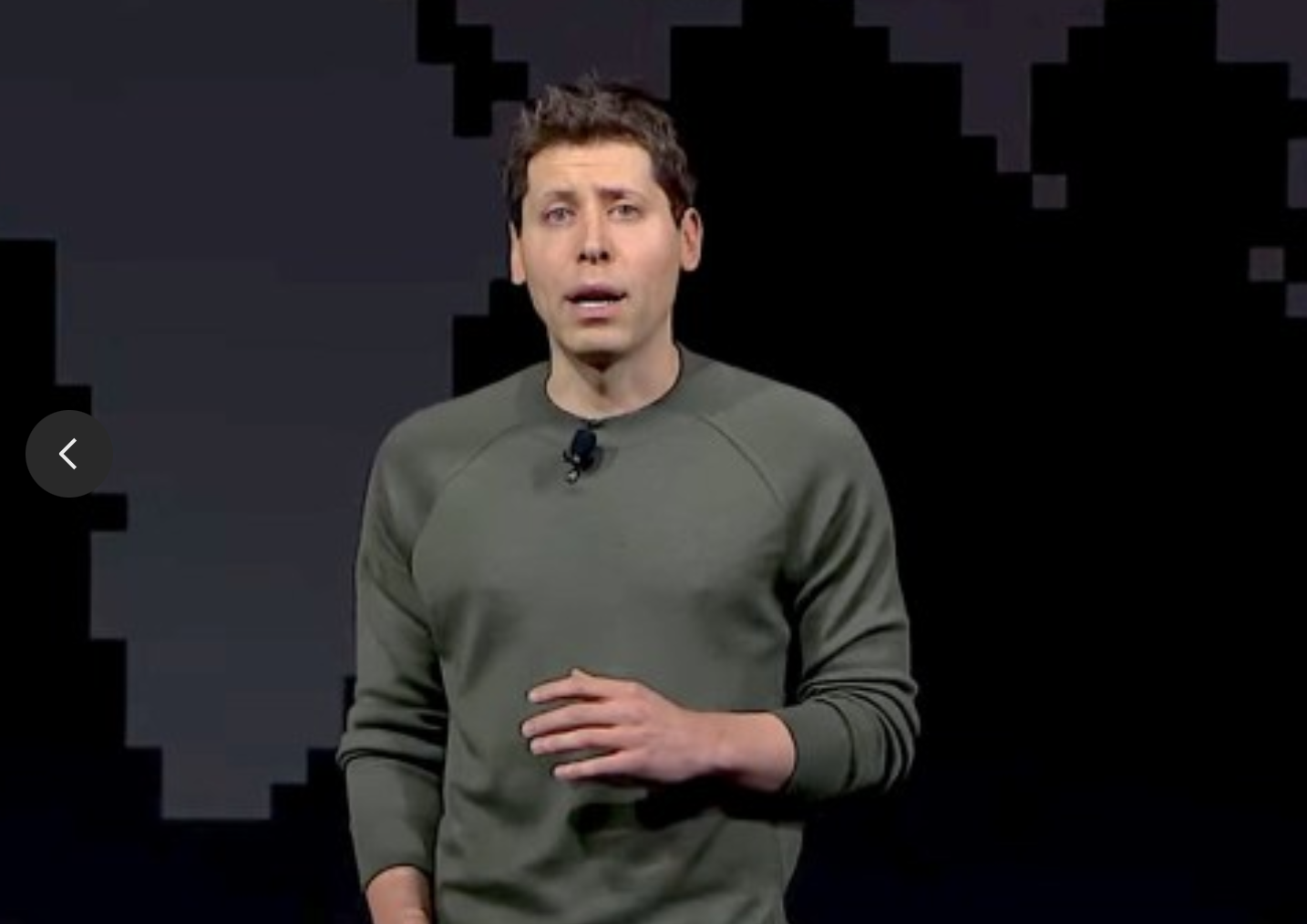
Sam Altman, CEO of OpenAI, envisions a future where AI becomes a ubiquitous tool, revolutionizing fields from education to healthcare. He believes AI will solve complex problems, from climate change to space colonization, driven by the power of deep learning and vast data.
Altman predicts superintelligent AI within 2.7 years, far sooner than many experts expect. This rapid advancement raises ethical and societal concerns. He foresees personalized AI teams for everyone, transforming daily life with tailored services and expert guidance.
However, challenges remain. High computational costs, limited specialized hardware, and inadequate infrastructure threaten to make AI a resource accessible only to the wealthy, potentially exacerbating inequality. Altman warns that without proper infrastructure, AI could become a tool of war and wealth.
He acknowledges AI's potential to disrupt jobs but argues it will also create new opportunities, focusing on roles requiring creativity and complex decision-making. Altman emphasizes the need to adapt and harness AI's benefits, not fear its impact.
In summary, Altman's vision is optimistic yet cautious. He calls for robust infrastructure to ensure AI's equitable distribution and to harness its transformative potential for the greater good.
ScoresSolo Founder Leverages Vercel and AI SDK for Rapid Product Development

Claire Vo, a solo founder, built ChatPRD, an AI co-pilot for product managers, from scratch. In nine months, it reached 20,000 users. ChatPRD helps PMs write documents, brainstorm roadmaps, and boost efficiency.
Challenges: As a solo founder, Claire faced hurdles in integrating advanced AI without technical overload. She needed a solution to focus on core product features.
Solution: Vercel, a deployment platform, and its AI SDK became the backbone. Vercel handled infrastructure, letting Claire concentrate on product development. The AI SDK simplified AI model integration, especially streaming responses and UI components, crucial for reducing latency.
Impact: Streaming features improved user satisfaction and sign-ups. Claire noted that perceived low latency was a game-changer.
Next Steps: ChatPRD aims to expand features for team collaboration. Vercel and its AI SDK enabled rapid scaling and user-friendly development, crucial for solo founders.
Key Takeaway: Tools like Vercel and its AI SDK empower solo founders to build and scale AI-driven products efficiently, focusing on user experience without technical distractions.
ScoresUber Expands EV Options and Launches AI Chatbot for Sustainable Mobility
Uber now allows users to default to fully electric vehicles in over 40 cities. CEO Dara Khosrowshahi announced this at Uber's Go Get Zero conference in London. The move aims to align with global zero-emission goals.
Uber Green, previously a mix of EVs and hybrids, now exclusively offers battery electric vehicles. The company also introduced an AI chatbot to guide drivers interested in switching to EVs.
Transportation accounts for 25% of global carbon emissions. Uber aims to be a zero-emissions platform by 2040.
For drivers, Uber launched an "EV Mentor" program and a partnership with Octopus Energy and BYD to fund 1,000 free home chargers in the U.K. This reduces charging costs and promotes EV adoption.
On the delivery side, Uber Eats adds farmers' market produce in NYC and LA. In Paris, Uber invests in sustainable packaging for restaurants.
France mandates reduced plastic waste, aligning with Uber's sustainability push.
Insights: Uber's shift to EVs and sustainable practices is a significant step. The AI chatbot and EV Mentor program simplify the transition for drivers. Partnerships with energy suppliers and EV manufacturers further this goal.
The move addresses environmental concerns and regulatory pressures. It positions Uber as a leader in sustainable mobility. However, success hinges on broader policy support and infrastructure development.
ScoresDeepMind CEO Demis Hassabis on AI-Driven Scientific Renaissance

DeepMind CEO Demis Hassabis envisions a new scientific renaissance driven by AI. His journey from student to entrepreneur, marked by the success of AlphaGo and AlphaFold, underscores AI's transformative potential.
AlphaFold, launched in 2021, predicts protein structures with atomic precision, a breakthrough in biology. Hassabis sees this as a starting point for AI's broader scientific application.
In February 2022, DeepMind partnered with the Swiss Plasma Center to develop a deep reinforcement learning algorithm for plasma control in nuclear fusion. This collaboration aims to optimize plasma configurations in tokamaks, crucial for fusion energy research.
While significant, these achievements are steps toward viable fusion energy. Commercialization remains uncertain, projected between 20-30 years, with scaling challenges.
Hassabis believes AI accelerates scientific discovery, exemplified by AlphaGo's 2016 victory over Go champion Lee Sedol. This triumph shifted DeepMind's focus from games to science, aiming for greater real-world impact.
Hassabis's 25-year journey in AI, inspired by a friend's passion for protein folding, culminated in AlphaFold's success. This tool, using attention networks, mimics human intuition in complex problems like protein folding and Go.
In essence, Hassabis's vision of AI as a creativity multiplier in science is unfolding. His work bridges gaming and biology, leveraging AI's potential to solve intricate scientific challenges.
ScoresOpenAI Secures $66 Billion Investment, Valuation Surges to $1570 Billion

OpenAI has secured a $66 billion (approximately ¥463 billion) investment, boosting its valuation to $1570 billion (approximately ¥11 trillion). This marks the company's largest venture capital deal to date. The funding round was led by Thrive Capital, with Microsoft, NVIDIA, and SoftBank also participating. Notably, Apple did not join this round.
The investment is structured as convertible debt, meaning it will convert to equity if OpenAI transitions to a for-profit entity within two years. If not, OpenAI must repay the debt. This move aims to enhance OpenAI's leadership in AI research, boost computational power, and develop AI tools to solve complex problems.
OpenAI predicts its revenue will surge from $37 billion this year to $116 billion next year, then double again to $256 billion by 2025, and reach $1000 billion by 2029.
The deal also includes a unique clause for Thrive Capital: if OpenAI meets revenue targets, Thrive can invest an additional $10 billion at a $1500 billion valuation next year. This could yield significant returns for Thrive.
OpenAI's transition to a for-profit entity faces substantial legal hurdles, requiring complex asset redistribution. The company must compensate its original non-profit structure, which could be challenging given the rapid growth since ChatGPT's launch.
This funding propels OpenAI into a new era, attracting more investors. However, the company must address core issues like leadership changes, safety concerns, and revenue generation to satisfy its new stakeholders.
ScoresAdobe's Initiative to Protect Digital Artists from AI Plagiarism

Adobe aims to protect digital artists from AI-driven plagiarism. By 2025, they will launch a beta version of their Content Authenticity Initiative (CAI) app. This app will allow creators to attach digital certificates to their work, ensuring it can be traced back to them.
The system uses advanced techniques like invisible watermarks and digital fingerprints. These methods embed subtle changes in files that are undetectable to the human eye but can be read by machines. Even if the certificate is removed, the file can still be identified as the original creator's work.
Adobe's Andy Parsons emphasizes that this technology will ensure content credentials remain with the file, no matter where it travels online. The success of this "opt-in" plan depends on widespread adoption, and with Adobe's 3300 million paying users, they are well-positioned to lead.
Adobe has also formed alliances with major tech companies and platforms like Microsoft, OpenAI, TikTok, and Google. While these partners may not immediately integrate Adobe's content certification, their involvement signals industry recognition.
To address the challenge of displaying content credentials across all platforms, Adobe will release a Chrome extension and an Inspect tool. These will help users verify the origin of content online.
Adobe's stance on AI is clear: they support its use but aim to prevent unauthorized training datasets. Their AI tool, Firefly, is trained only on content Adobe explicitly permits, ensuring commercial safety.
Adobe's efforts are gaining traction, with positive feedback on Firefly's integration into Photoshop and Lightroom. They also collaborate with Spawning, a tool that helps artists control how their work is used online.
In summary, Adobe's CAI aims to safeguard digital art by embedding traceable credentials, fostering industry collaboration, and ensuring AI respects artists' rights.
ScoresTools
Squarespace Introduces AI Tool for Enhanced Website Design
Squarespace's Design Intelligence uses AI to craft websites, focusing on quality over quantity. It generates design elements and text based on prompts, but allows for extensive human customization. This balance ensures a professional, unique look.
Key Points:
- Curation: Squarespace curates content to match their design ethos, ensuring high quality.
- AI Integration: Unlike others, Squarespace thoughtfully integrates AI, enhancing human creativity rather than replacing it.
- Opportunity for Designers: AI speeds up creation, freeing time for personal touches.
Insights: AI should be seen as a tool to amplify human creativity, not diminish it. Squarespace's approach exemplifies this balance.
ScoresCloudflare Enhances Security with AI-Powered Tools

Cloudflare integrates AI to enhance security. The AI Assistant now creates WAF rules, simplifying setup. Radar uses AI to analyze bot and crawler traffic, providing deeper insights. New AI bot-blocking tools strengthen defenses.
WAF (Web Application Firewall): A protective barrier that filters and monitors web traffic, safeguarding applications from online threats.
Radar: Cloudflare’s tool that examines internet traffic patterns, uncovering trends and irregularities.
ScoresBuilding a Content Recommendation System with AI and Vector Scaling
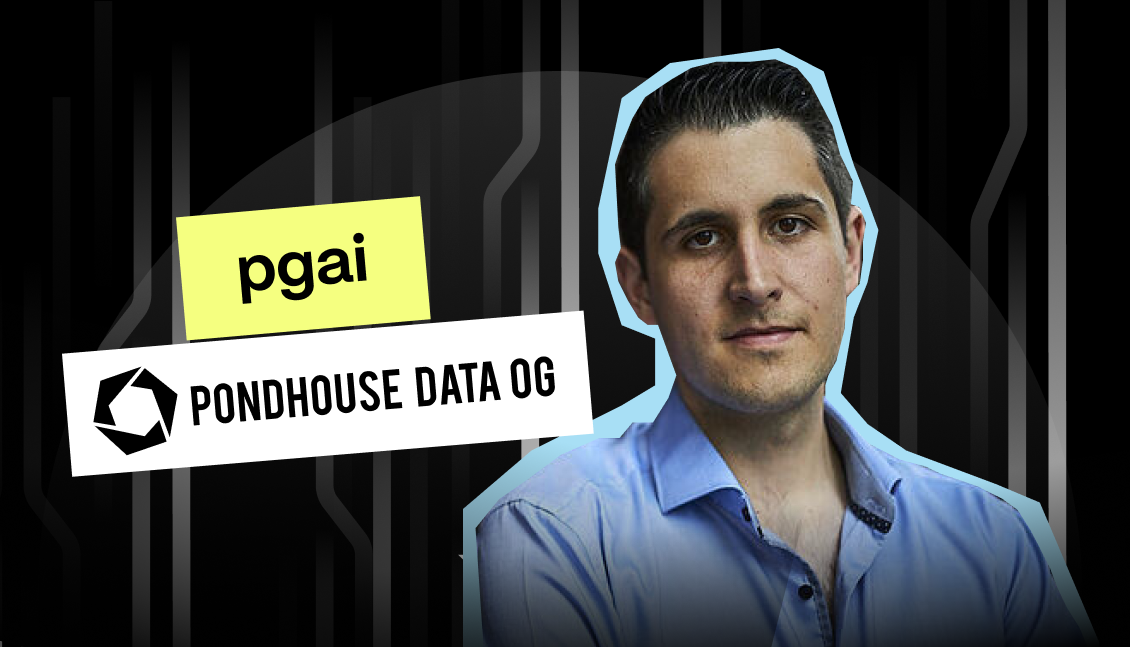
Pondhouse Data has developed a content recommendation system using pgai and pgvectorscale. These tools utilize AI to suggest relevant content. Tailor recommendations to your needs by accessing these tools.
pgai: An AI platform that generates personalized content suggestions.
pgvectorscale: Enhances pgai by scaling vector data, improving recommendation accuracy.
Insights: The integration of AI in content recommendation represents a significant advancement. It enables more precise and personalized suggestions, which can enhance user experience. The combination of pgai and pgvectorscale showcases a thoughtful approach to leveraging technology for practical applications.
ScoresAI-Powered Collaboration Board 'Cove' Launched by Former Google Maps Engineers
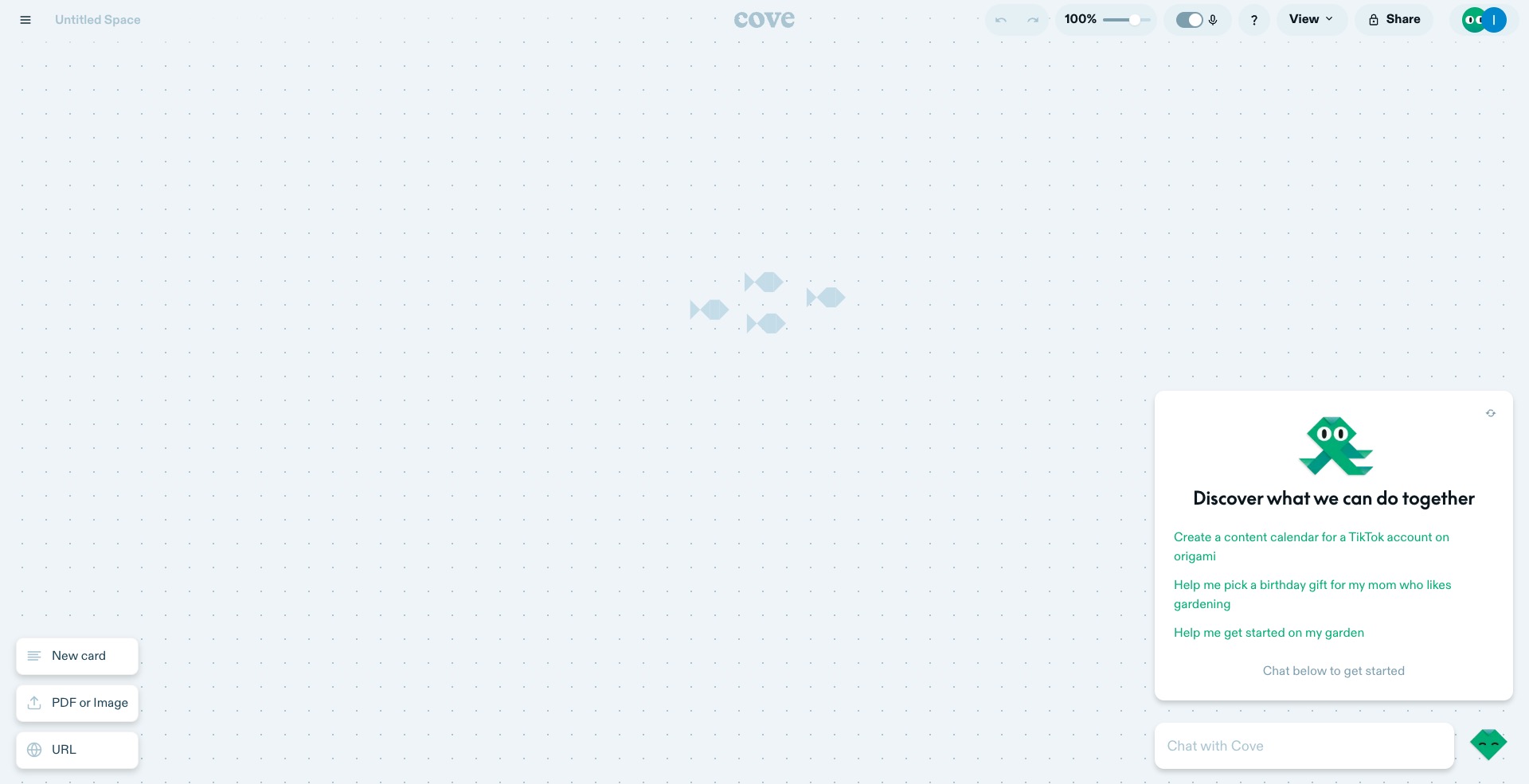
Cove, an AI-powered collaboration board, aims to shift AI interactions from linear chats to a dynamic, infinite canvas. Users can generate multiple responses to a single prompt, useful for tasks like planning, writing, and research. The interface features an infinite board with a chatbot window, allowing users to create and edit response cards, add PDFs, links, images, and more. Designed for collaborative work, Cove offers shared access with editing permissions and integrates various AI models. It’s free with a 100-card limit; unlimited cards and early features require a $10 monthly subscription.
Explanation:
- AI-powered: Uses artificial intelligence to assist or automate tasks.
- Infinite canvas: A workspace without predefined boundaries, allowing continuous expansion.
- Response cards: Individual units of content generated by the AI in response to user prompts.
- Chrome extension: A small software module for the Chrome browser that adds functionality.
Google's AI Tool Creates Podcasts from Uploaded Content.
Google's Audio Overview, powered by NotebookLM and Gemini 1.5, creates AI podcasts. Users upload PDFs and videos, then ask questions for summaries. The tool generates a podcast, "Deep Dive," with realistic voices discussing the content.
Originally a study tool, NotebookLM now offers customizable options: length, format, voices, and languages. Some users create podcasts in languages other than English. Examples include summaries of "The Great Gatsby," Meta's Llama-3 code, and OpenAI's Dev Day announcements.
The tool can produce humorous results, like an AI discussion on "poop" and "fart."
Explanation:
- NotebookLM: A tool that helps summarize and discuss uploaded content.
- Gemini 1.5: A technology that powers NotebookLM, enabling it to create realistic AI voices.
- Llama-3 code: Likely refers to a code or project by Meta, possibly related to AI or machine learning.
AI-Powered Resume Builder Simplifies Job Applications
CVGist, an AI resume builder, simplifies job applications by generating resumes from brief bios and job descriptions. Launched this year, it has served over 500 customers via social media.
Challenges:
- Overcame OpenAI's JSON response limitation.
- Uses Supabase for user data and Preact for front-end.
Growth:
- Social media and small ads drive user acquisition.
- SEO tools like Semrush aid keyword targeting.
Lessons:
- Product Hunt launch improved SEO.
- Reddit and Hacker News boost indie startup visibility.
Future:
- Plans include industry-specific templates and tools.
- Aims to automate the entire job application process.
Philosophy:
- Building in public fosters feedback.
- Emphasizes continuous improvement over perfection.
Explanation:
- JSON: A data format used for storing and exchanging information.
- SEO: Search Engine Optimization, improving a website's visibility on search engines.
- Product Hunt: A platform where new products are showcased.
- Reddit/Hacker News: Popular forums for tech and startup discussions.
- Supabase/Preact: Technologies for managing data and building user interfaces.
CVGist embodies agile, user-focused innovation, making it a promising tool for job seekers.
ScoresResource
AI-Enhanced Tutoring System Boosts Student Mastery
Tutor CoPilot, a Human-AI system, boosts student mastery by 4 percentage points. It assists novice tutors with expert guidance, particularly benefiting lower-rated tutors by 9 percentage points. The system costs just $20 per tutor annually. Tutors adopt better teaching strategies, such as asking guiding questions instead of providing answers. Some issues, like grade-level appropriateness, require refinement. Overall, it demonstrates how AI can scale expertise and enhance education for all students.
ScoresAI-Powered YouTube to Twitter Thread Conversion Tutorial
In "Tutorial: How to Turn YouTube Videos Into Twitter Threads Using AI" by Aaron Kow, the focus is on leveraging AI to transform lengthy YouTube videos into concise Twitter threads. The goal? To make information digestible and shareable in the fast-paced social media landscape.
AI tools are used to extract key points from videos, condense them into bite-sized tweets, and arrange them into a coherent thread. This method allows for efficient learning and easy sharing, catering to the modern need for quick, accessible content.
Kow emphasizes the importance of brevity and clarity in social media posts. He suggests that AI can help bridge the gap between long-form content and the short attention spans of online audiences. The tutorial provides a step-by-step guide, ensuring even those new to AI can follow along.
My take? In an era where information overload is rampant, tools that streamline content creation are invaluable. This method not only enhances personal learning but also fosters broader knowledge sharing. It’s a practical solution for anyone looking to make their content more engaging and accessible.
ScoresPrepare for the AWS Certified AI Practitioner Certification.
The AWS Certified AI Practitioner certification is a key to unlocking higher pay and career growth in AI and ML. This certification is tailored for those familiar with AI/ML on AWS but not necessarily developers. It’s a smart move for anyone looking to stand out in a competitive job market.
A recent AWS study shows that AI expertise can boost salaries by up to 47% in certain fields. This certification proves your grasp of AI and ML, making you a top candidate.
The course on freeCodeCamp.org, developed by Andrew Brown of ExamPro, covers everything you need to pass the exam. It’s a 15-hour deep dive into AI and ML fundamentals, data handling, generative AI, and AWS tools like SageMaker and Bedrock.
This course is ideal for beginners in IT and AWS Cloud, as well as those with existing AWS certifications. If you’re new, start with AWS Cloud Practitioner Essentials or AWS Technical Essentials.
The AWS Certified AI Practitioner certification goes beyond the foundational AWS Certified Cloud Practitioner certification. It focuses specifically on AI frameworks and AWS technologies, especially generative AI.
Whether you’re aiming to upskill or switch careers, this course is a crucial step. Watch the full course on freeCodeCamp.org’s YouTube channel.
Scores